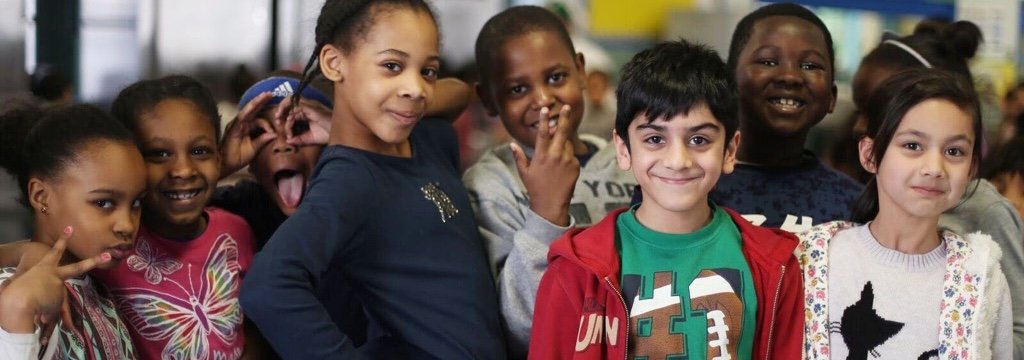Get more from InsideSchools
P.S. 150
Share this school
Manhattan NY 10006
Our Insights
What’s Special
Singapore math and projects that integrate science and social studies
The Downside
Tiny size may not appeal to everyone
PS 150 offers solid academics including a demanding math program, hands-on science and plenty of field trips. The school's small size (with just one class per grade), super-involved parents and vibrant arts-infused academics set it apart from many large Manhattan schools.
PS 150 uses Math in Focus, a sophisticated and fast-paced approach that encourages student to solve multi-step problems. Math in Focus is based on the math curriculum used in Singapore, an island nation known for high levels of math achievement. Math in Focus covers fewer topics than most programs used in the United States and strives to make sure students understand one concept before they go on to the next. The program is aligned to the new state Common Core standards, which accelerate math instruction by about a year.
Teachers told us they like the math program because it provides difficult problems for strong students while offering lots of support for those who are struggling. We saw a class in which children worked on the same math problem but received different amounts of guidance: Strong students attacked the problem on their own, others received clues to help them get started and still others worked closely with the teacher, who offered more step-by-step help.
Children have semester-long projects (called units of study) that integrate science, social studies, reading and writing. For example, 2nd-graders study snakes—visiting the Central Park Zoo, observing snakes housed in a tank in their classroom, and reading books and writing essays about snakes. Other classes study bakeries, farm animals, New York City transportation, immigration, bridges, Colonial New York, and Lewis and Clark’s expedition.
Children travel to Frost Valley to take a closer look at animals, rocks and minerals; they sail on the Clearwater to learn more about the water cycle. “We do a lot of field trips and experiments,” said a student. Units of study culminate twice a year in school-wide presentations and discussion forums.
Technology is integrated as seamlessly into the academics as the arts. During a 5th-grade science class we observed, students took notes on iPads as they watched a movie about nutrition called "Super Size Me," after which they participated in an experiment on carbohydrates and recorded their findings on laptops. A child mentioned that a study of the rock cycle culminated in student-made podcasts. Grades 3-5 visit the small basement science lab that doubles as a library three times a week.
In 2022, the school moved to a new location where it will eventually expand to offer two classes per grade. The new facilities include a cafeteria, a gymatorium (combined gymnasium and auditorium) and two outdoor yards.
Special education: Because of its small size, PS 150 offers Special Education Teacher Support Services (SETSS) but does not offer team-teaching or self-contained classes.
Admissions: Priority to siblings and students zoned for downtown schools PS 234, PS 89, PS 276, PS 343 and PS 397, with higher priority to PS 234 and PS 276 because they do not have pre-k programs. Remaining seats are filled by lottery with District 2 preference. (Lydie Raschka, October 2013; Clara Hemphill, January 2014; updated November, 2022 with new facilities information)
Read more
Comments